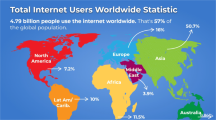Abstract
As the coronavirus (COVID-19) grows its impact from China, expanding its catchment into surrounding regions and other countries, increased national and international measures are being taken to contain the outbreak. This perspective paper is written to capture and analyze the various mental state health issues being perceived via emotional analysis of Twitter data during the COVID-19 virus outbreak from a single nation further spread of to the whole world. A data-driven approach with higher accuracy as here can be very useful for a proactive response from the government and citizens. In the proposed work, tweets during the COVID situation have been collected and their sentiments are explored using BERT (Bidirectional Encoder Representation from Transformer) algorithm. BERT is the algorithm that takes text as input, and the trained basis on the epochs (number of passes performed). The performance parameters are computed such as accuracy, precision, recall, and F-measure. Further, the proposed approach is compared with other existing algorithms such as Naïve Bayes (NB), support vector machine (SVM), and logistic regression (LR). The performance measures indicate that the BERT algorithm outperforms all other existing algorithms with an accuracy of 86.7% as compared to 67.3%, 63.4%, and 61.2% with Naïve Bayes, support vector machine, and logistic regression, respectively. The government and other medical health agencies can use the outcomes of this paper for implementing and taking preventative measures to maintain the good mental and physical health of medical staff.
Access this chapter
Tax calculation will be finalised at checkout
Purchases are for personal use only
Similar content being viewed by others
References
Alaparthi S, Mishra M (2020) Bidirectional encoder representations from transformers (BERT): a sentiment analysis odyssey. arXiv:2007.01127
Allen TT, Sui Z, Akbari K (2018) Exploratory text data analysis for quality hypothesis generation. Qual Eng 30(4):701–712
Belkacem S (2020) COVID-19 data analysis and forecasting: algeria and the world. arXiv:2007.09755, RoessleinJoshua. “tweepy Documentation. http://tweepy.readthedocs.io/en/v3.5 (2009)
Cambria E, Poria S, Gelbukh A, Thelwall M (2017) Sentiment analysis is a big suitcase. IEEE Intell Syst 32(6):74–80
Ćosić K, Popović S, Šarlija M, Kesedžić I (2020) Impact of human disasters and Covid-19 pandemic on mental health: Potential of digital psychiatry. PsychiatriaDanubina 32(1):25–31
Devlin J, Chang MW, Lee K, Toutanova K (2018) Bert: Pre-training of deep bidirectional transformers for language understanding. arXiv:1810.04805
Galbraith N, Boyda D, McFeeters D, Hassan T (2020) The mental health of doctors during the Covid-19 pandemic. BJ Psych Bull:1–4
Huang L, Rong Liu H (2020) Emotional responses and coping strategies of nurses and nursing college students during COVID-19 outbreak
Hughes DJ, Rowe M, Batey M, Lee A (2012) A tale of two sites: Twitter vs. Facebook and the personality predictors of social media usage. Comput Hum Behav 28(2):561–569
Indra ST, Wikarsa L, Turang R (2016) Using logistic regression method to classify tweets into the selected topics. In: 2016 International conference on advanced computer science and information systems (ICACSIS). IEEE, pp 385–390
Kywe SM, Hoang TA, Lim EP, Zhu F (2012) On recommending hashtags in twitter networks. In: International conference on social informatics. Springer, Berlin, Heidelberg, pp 337–350
Mardani A, Saraji MK, Mishra AR, Rani P (2020) A novel extended approach under hesitant fuzzy sets to design a framework for assessing the key challenges of digital health interventions adoption during the COVID-19 outbreak. Appl Soft Comput:106613
Mittal S (2020) An exploratory data analysis of COVID-19 in India. Int J Eng Res Technol (IJERT). ISSN: 2278-0181
Mohammad SM, Kiritchenko S (2015) Using hashtags to capture fine emotion categories from tweets. Comput Intell 31(2):301–326
Nabity-Grover T, Cheung CM, Thatcher JB (2020) Inside out and outside in: How the COVID-19 pandemic affects self-disclosure on social media. Int J Inf Manag:102188
Naseem U, Razzak I, Musial K, Imran M (2020) Transformer based deep intelligent contextual embedding for twitter sentiment analysis. Futur Gener Comput Syst 113:58–69
Pang B, Lee L (2004) A sentimental education: sentiment analysis using subjectivity summarization based on minimum cuts. arXiv preprint cs/0409058
Parise S, Whelan E, Todd S (2015) How Twitter users can generate better ideas. MIT Sloan Manag Rev 56(4):21
Patel M (2019) TinySearch--semantics based search engine using bert embeddings. arXiv:1908.02451
Sahoo S, Bharadwaj S, Parveen S, Singh AP, Tandup C, Mehra A, Grover S (2020) Self-harm and COVID-19 pandemic: an emerging concern–a report of 2 cases from India. Asian J Psychiatry
Sujath R, Chatterjee JM, Hassanien AE (2020) A machine learning forecasting model for COVID-19 pandemic in India. Stochast Environ Res Risk Assess:1
Tuli S, Tuli S, Tuli R, Gill SS (2020) Predicting the growth and trend of COVID-19 pandemic using machine learning and cloud computing. Internet Things:100222
Wang J, Tang K, Feng K, Lv W (2020) High temperature and high humidity reduce the transmission of COVID-19. SSRN 3551767
Wolf T, Debut L, Sanh V, Chaumond J, Delangue C, Moi A, Brew J (2019) HuggingFace's transformers: state-of-the-art natural language processing. Arxiv-1910
Zhang Z (2016) Model building strategy for logistic regression: purposeful selection. Annals Trans Med 4(6)
Author information
Authors and Affiliations
Editor information
Editors and Affiliations
Rights and permissions
Copyright information
© 2022 The Author(s), under exclusive license to Springer Nature Singapore Pte Ltd.
About this paper
Cite this paper
Kaur, G., Saini, M., Chhabra, A. (2022). Sentimental Analysis of Tweets During COVID-19 Pandemic: BERT Algorithm. In: Marriwala, N., Tripathi, C.C., Jain, S., Mathapathi, S. (eds) Emergent Converging Technologies and Biomedical Systems . Lecture Notes in Electrical Engineering, vol 841. Springer, Singapore. https://doi.org/10.1007/978-981-16-8774-7_11
Download citation
DOI: https://doi.org/10.1007/978-981-16-8774-7_11
Published:
Publisher Name: Springer, Singapore
Print ISBN: 978-981-16-8773-0
Online ISBN: 978-981-16-8774-7
eBook Packages: EngineeringEngineering (R0)




